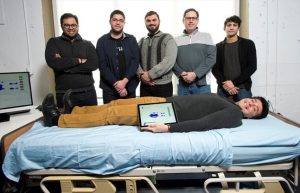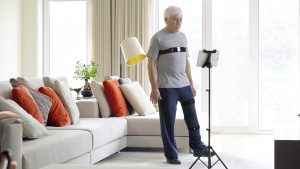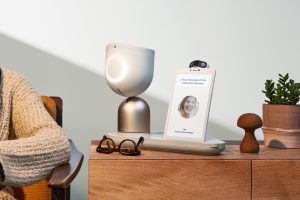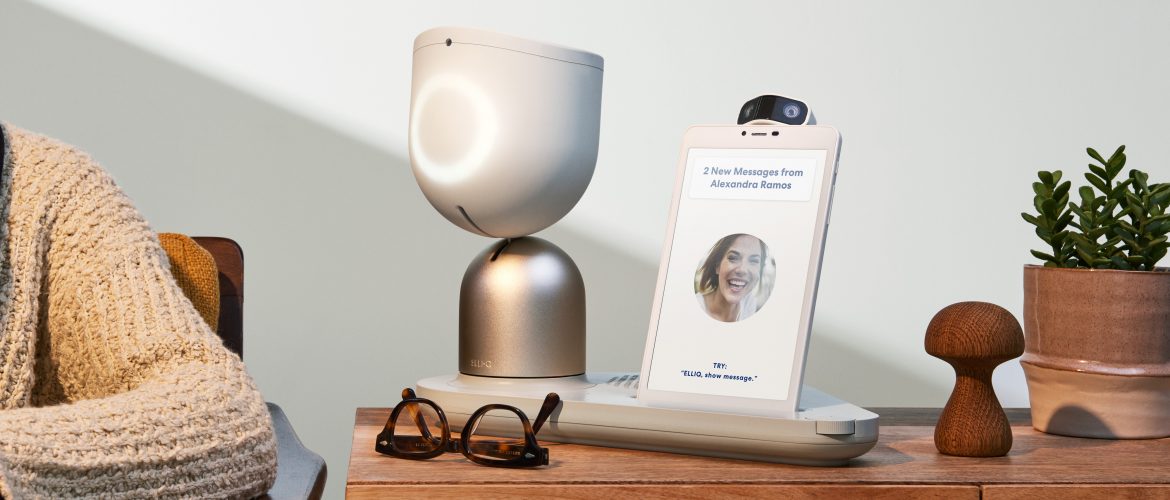The Canadian population is aging faster now than at any time in our history. Technology will play a crucial role in the way we understand and treat age-related conditions such as dementia, and effective innovations will make all the difference in the quality of life of older adults, their families, and caregivers.
The Centre for Aging + Brain Health Innovation (CABHI), powered by Baycrest, enables and accelerates the testing of promising solutions in real-world care settings, to the benefit of all of us as we age.
Over the past five years, CABHI has funded more than 270 projects from across Ontario, Canada, and around the world, and validated them in more than 120 care sites across North America. In addition to financial support and clinical validation, CABHI provides innovators with acceleration services and access to its global networks of partners, including distribution channels and science and business advisors.
Below, we spotlight five CABHI-supported digital health innovations that are on their way to improving the quality of life of older adults worldwide.
Smart bed sheet

The Curiato team
The people most at risk of bedsores (also called pressure ulcers) are those with limited ability to change positions or those who spend most of their time in a bed or chair – namely, older adults. Startup Curiato is tackling the issue with their innovative skin-data platform that collects patient data from a bedsheet with built-in sensors, so bedsores and other pressure injuries can be accurately predicted and prevented. The system works with existing hospital beds and uses artificial intelligence (AI) to analyze and deliver data to care teams in real-time using a digital interface.
With CABHI’s support, Curiato is testing their solution with individuals living with dementia in long-term and acute care institutions. The goal is to help frontline medical teams prioritize procedures and increase the quality of life for those at risk of pressure injuries.
Digital physical therapy platform

SWORD Phoenix
With the rising number of older adults in Canada and the ever-increasing need for physical therapy and rehabilitation, there is a persistent gap in access to treatment. To overcome this barrier, Portuguese startup SWORD Health has created a digital platform that enables older adults to perform their physical therapy independently at home, under the remote watch of a clinical team. With support from CABHI, SWORD Health is validating their innovation in collaboration with CBI Health Group, the largest provider of community healthcare services in Canada.
Daily support for older adults living with dementia

DataDay app
DataDay is a user-friendly app that provides daily support, reminders, and monitoring to individuals living with early dementia or mild cognitive impairment. Audio, text, and visual prompts remind users to carry out tasks and activities like preparing meals or taking medications, providing greater independence for those living at home.
The app can also help older adults and their families spot the earliest signs of change, and allow clinical teams to assess individuals remotely. Monitoring helps caregivers and clinicians proactively identify any emerging issues, and thereby prevent avoidable hospitalization or trips to the emergency room. DataDay was co-created with people living with dementia by Dr. Arlene Astell at Ontario Shores Centre for Mental Health Sciences (now at UHN).
A hospital bed for the 21st century

Ably Bed
Norwegian company Ably Medical is using state-of-the-art sensor technology and machine learning to develop and test the Ably Bed, a bed that actively assists nurses and works to protect patients at risk for falls and pressure ulcers.
With CABHI support, Ably Medical is testing and evaluating the bed at four Ontario hospitals: Hamilton Health Sciences, West Park Health Centre, Southlake Regional Health Centre, and Mackenzie Health.
Social robot companion

ElliQ
ElliQ is a social robot that aims to reduce social isolation and loneliness amongst older adults by providing companionship, enrichment and support. ElliQ acts both as an assistant – by providing reminders of calendar appointments, receiving and sending messages, displaying photos from family and friends – and as a companion, by acknowledging the older adult when they enter a room, wishing them good morning, greeting them when they come home, and more.
CABHI helped broker a relationship between Intuition Robotics, the company behind ElliQ, and two independent living homes to test the extent to which ElliQ can decrease feelings of loneliness and isolation in seniors. The clinical validation testing is currently underway.


